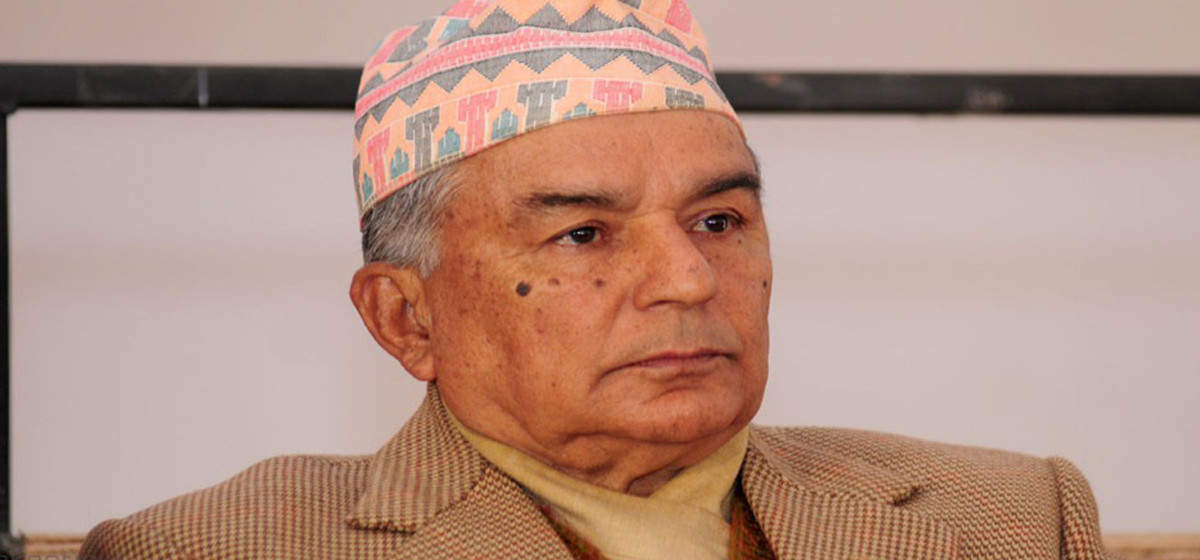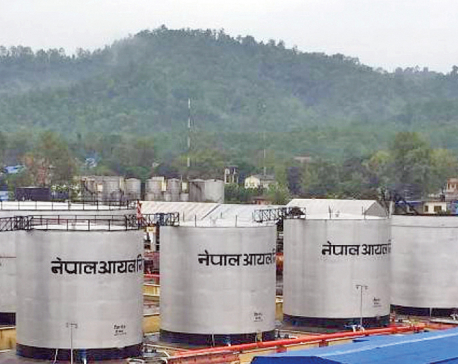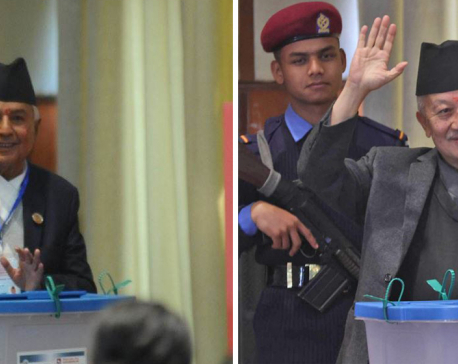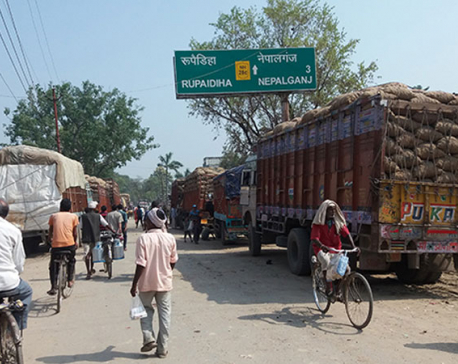
OR
Ram Chandra Poudel elected as third president of republic Nepal
Published On: March 9, 2023 05:03 PM NPT By: Republica | @RepublicaNepal

KATHMANDU, March 9: Nepali Congress (NC) senior leader Ram Chandra Poudel has been elected as the third president of the federal democratic republic Nepal.
Poudel, who was a common candidate of eight-party alliance that included NC and the CPN (Maoist Center), was elected to the post of the country’s head of the state by securing a total of 33802 votes. Poudel received the vote of 214 lawmakers of the federal parliament and 352 provincial assembly members.
Poudel was backed by eight parties including his own party, NC, while his rival Subas Chandra Nebmang for the post of president while Nembang had support of his party UML alone.
Although there was hope that Rastriya Prajatantra Party (RPP) and Rastriya Swatantra Party (RSP) would vote in favor of Nembang, the RPP decided not to take part in the voting while RSP decided to vote in favor of Poudel on Thursday.
It may be just a coincidence that both Poudel and Nembang served as Speaker of the lower house of the federal parliament. Poudel served as HoR Speaker from December 18, 1994 to March 23, 1999.
The president is elected by an electoral college composed of the members of the federal parliament and the provincial assemblies. It consists of 884 members, including 275 members of the House of Representatives (Lower House), 59 members of the National Assembly (Upper House), and 550 members of seven provincial assemblies.
The weight of each vote varies according to the Federal law, with a member of the federal parliament's vote carrying 79 votes, and a member of the provincial assembly's vote carrying 48 votes.
A total of 15 political parties and a few independent lawmakers are eligible to vote in the Nepalese presidential election. The EC has recognized the NC, UML, CPN (Maoist Center), CPN (Unified Socialist), Rastriya Swatantra Party, Rastriya Prajatantra Party, and Janata Samajbadi Party as eligible to cast votes.
Other parties eligible for votes include Janamat Party, Loktantrik Samajbadi Party, Nagarik Unmukti Party, Nepal Workers' and Peasants Party, People's Front Nepal, Hamro Nepali Party, as well as independent lawmakers in the federal parliament and 550 provincial assembly members from across seven provinces.
This means that there will be a total of 52,707 electoral votes in the electoral college that elects the new president. A candidate must secure more than 50 percent of the total votes to get elected as a new president.
You May Like This

NOC slashes price of petrol by Rs 7 per liter, diesel and kerosene by Rs 5 per liter
KATHMANDU, May 15: Nepal Oil Corporation (NOC) has announced a significant reduction in the prices of petrol, diesel and kerosene. Read More...

Voting for presidential election ends, vote counting to start from 4 pm
KATHMANDU, March 9: The voting process for the presidential election has concluded, and now arrangements are underway for the tallying... Read More...

Security beefed up along Nepal-India border
NAWALPARASI, May 11: The Indian security forces have adopted high alertness at various places along the Nepal-India border in Nawalparasi... Read More...





Just In
- NRB introduces cautiously flexible measures to address ongoing slowdown in various economic sectors
- Forced Covid-19 cremations: is it too late for redemption?
- NRB to provide collateral-free loans to foreign employment seekers
- NEB to publish Grade 12 results next week
- Body handover begins; Relatives remain dissatisfied with insurance, compensation amount
- NC defers its plan to join Koshi govt
- NRB to review microfinance loan interest rate
- 134 dead in floods and landslides since onset of monsoon this year












Leave A Comment